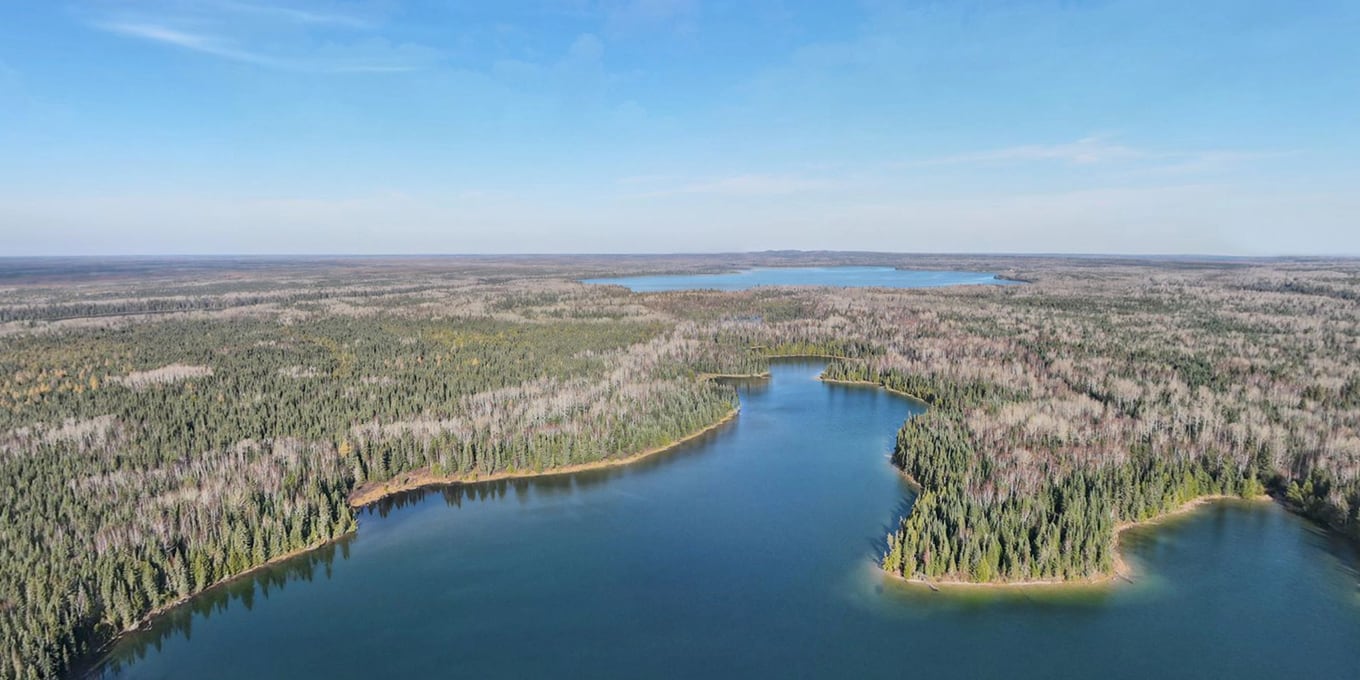Nature Conservancy of Canada announces plans for largest private land conservation project in Canada’s history
The Nature Conservancy of Canada has just announced plans for the largest private land conservation project in Canada’s history. When complete, Boreal Wildlands will protect 1,450 square kilometres of boreal forest near Hearst in northern Ontario.
The project will encompass an area twice the size of the city of Toronto.
This week, as we celebrate Earth Day and what it means to our communities, our country and our planet, we can be proud of not only the sheer size of this project, but its enormous and positive impacts on two of the most pressing crises in the world today – biodiversity loss and climate change.
In the face of these challenges, nature offers a real solution. And the Boreal Wildlands project is part of it.
This conserved area will protect forests in what is often referred to as the “lungs of the planet.” The boreal forest in Canada holds more than 10 per cent of the world’s total land-based carbon reserves and peatlands that absorb and store significant amounts of greenhouse gas emissions. It also shelters natural corridors — refuges for species at risk, including threatened woodland caribou.
Boreal Wildlands is the future of conservation; it is modeled on a ”whole-of-society” approach that brings together a diversity of partners to ensure there is room for everyone to participate in addressing our most pressing issues. It is a template for success, and for working at a scale that will make a lasting impact. The project supports the Government of Canada’s recent announcements in Budget 2022. It is also a significant contribution to the government’s 2030 Emissions Reduction Plan, recognizes nature as a real solution to climate change. Boreal Wildlands contributes to Canada’s commitment to conserve 30 per cent of our lands and waters by 2030.
The Nature Conservancy of Canada and its partners are seeking durable conservation outcomes that honour Indigenous relationships with the land, such as access for harvesting and a space for knowledge-sharing. Our first joint research project, monitoring woodland caribou habitat, is already underway.
Just as nature offers a solution to the world’s pressing issues, collaboration is a critical solution to get more nature into our lives.
The Boreal Wildlands project offers a model for effective collaboration. We know that when faced with today’s global crises, working independently will not yield the results our communities so urgently need. But together, we are able to achieve impact at a large scale. The Nature Conservancy of Canada is working with pulp and paper company Domtar Inc., three levels of government and Indigenous communities to deliver nature-based climate solutions.
With this collaboration, we are unlocking innovation. Boreal Wildland’s forests and deep peatlands store carbon equivalent to the average lifetime emissions of 3 million cars. Each year they absorb more. The Nature Conservancy of Canada is developing a Boreal Wildlands conservation carbon credit project; our second in Canada and first in Ontario.
Conservation keeps the carbon in the ground. Carbon credits help other organizations to achieve their net zero goals, while the proceeds will help pay for the project itself and provide local benefits and even more conservation action, right across the country.
It doesn’t stop here. Over the next few years, the Nature Conservancy of Canada will double the pace of its conservation work, joining partners to deliver hundreds of thousands more conserved hectares.
Boreal Wildlands’ integrated landscape approach is a model for conservation that addresses today’s crises. It’s also an opportunity to inspire others to get involved in the final push to complete the project.
Investing in nature makes a lot of sense, and this is our moment – a once-in-a-lifetime opportunity to get it right. Conservation is crucial to the health of this country and to the planet. Because when nature thrives, we all thrive.
(Catherine Grenier is President and CEO with the Nature Conservancy of Canada)

























